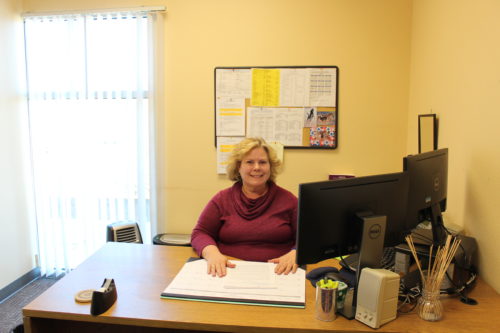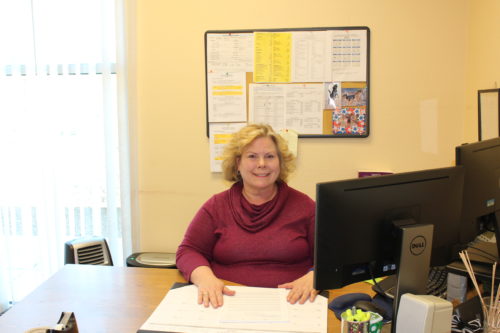
It’s a relatively quiet Friday afternoon for Joy Kemp, deputy public defender for Cochise County.
With no court hearings to attend and no client meetings, she tucks herself away in her Sierra Vista office. There’s still plenty of work to be done.
Her email inbox has fallen a bit behind. Next, it’s researching and preparing for cases. For the most part, Kemp’s eyes stay glued to her large desktop screen. She occasionally glances over her laptop to check the surveillance camera when she hears her office doorbell ring.
“My bosses kindly had this installed for me when I started. Gives me some peace of mind, especially when I’m here by myself,” Kemp says.
Her office is safe, but if there is one thing Kemp has learned during her career in law, it’s that you never know what is going to happen next.
For Kemp, practicing law is in her blood. Her father had a seat on the municipal court bench in Ohio, so a law degree seemed like the best option. After graduating from Ohio State University with a degree in psychology, Kemp attended law school at the University of Toledo.
While law school was necessary, Kemp found hands-on experience to be the most valuable in her learning. “Law school teaches you theory, but you have to learn how to apply it,” Kemp says.
Upon graduating in 1982, Kemp immediately opened her own office. Four years later, life brought her to Arizona, where she began her career in the public sector.
She started off in Maricopa County Public Defender’s Office, before moving on to become Pinal County’s juvenile prosecutor. She moved into her current position as a Cochise County deputy public defender, handling the juvenile division of delinquencies and dependencies, in November 2017.
According to Kemp, her clients primarily fit into three categories. The first, and “the majority of what I deal with, is dumb kid stuff,” Kemp says. According to Kemp, these juveniles make one mistake, move through the court and never commit another crime again.
The second category includes “frequent flyers,” she says, or juveniles who often have a mental health problem and continually get into trouble with the law.
The third category are those who are on a criminal path. According to Kemp, these juveniles continually engage in illegal activity and will most likely end up in prison as adults.
Kemp meets with juveniles and their parents, and the process goes relatively fast. “Most delinquency cases are as short as 30 days and about 90 percent enter into a plea agreement,” Kemp says. Unlike the adult court system, the main goal of the juvenile system focuses more so on accountability, rather than punishment, and acts as, “a restraining force in juvenile’s lives,” Kemp says.
For Kemp, the main goal of a public defender has, “less to do with the client and more to do with being a quality control check point,” she says. Kemp sees her position as holding the court system accountable, ensuring that her clients are being treated fairly.
There are tough areas that come along with the job. According to Kemp, the hardest part about her job is when a frequent flyer, who suffers from mental illness, gets charged with something more serious.
Kemp says she is more aware of the secondary trauma she takes on when working with a difficult case. The job requires her to be there for her client, while also remaining emotionally distant. The balance between the two can be difficult, she says.
As someone who is supportive of counseling, Kemp says she would like to see Cochise County have more access to services that would act as positive support for juveniles.
“Being in a rural area, it can be hard to attract qualified therapists,” Kemp says.
Tori Cutcher is a reporter from Arizona Sonora News, a service from the School of Journalism with the University of Arizona, Contact him at [email protected].








